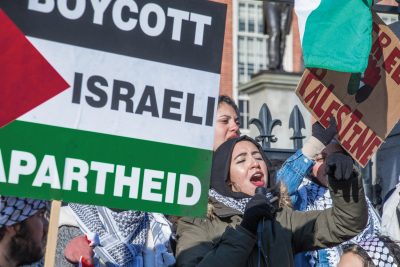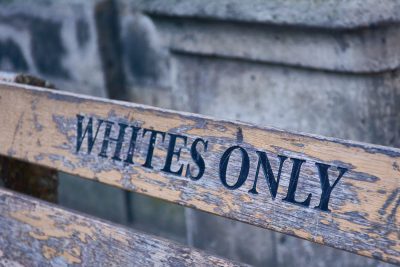×


We have detected your country as:
Please click here to go to the USA website or select another country from the dropdown list.
by: Ilse Strauss, Assistant Editor
 Afrikaans is neither a common nor a widely spoken language. Outside the borders of South Africa, few are aware of the existence of the mother tongue of the Afrikaaner people. Yet regardless of its international obscurity, one Afrikaans word demands global recognition: apartheid.
Afrikaans is neither a common nor a widely spoken language. Outside the borders of South Africa, few are aware of the existence of the mother tongue of the Afrikaaner people. Yet regardless of its international obscurity, one Afrikaans word demands global recognition: apartheid.
In 1948 the ruling white minority in South Africa began enforcing an ideology of supremacy, racial segregation and political and economic discrimination. They called the system apartheid, which literally means “a state of being apart.” Yet the ideology went well beyond drawing distinctive lines around and between races.
The Reverend Kenneth Meshoe, prominent South African pastor, member of parliament and president of the African Christian Democratic Party, remembers apartheid as “wicked, evil, inhuman, dehumanizing and humiliating.” Meshoe is well acquainted with apartheid. He spent the first 40 years of his life living under the system that stripped South African non-whites of their social and civil rights and subjected them to a life of repression, poverty and hopelessness.
Apartheid died a well-deserved death in 1994 when all South Africans went to the polls in the nation’s first democratic election. Today, 25 years later, as South Africans still live with the scars of the past—and its effect in the present—there are those who would capitalize on the nation’s painful history for their own selfish purposes, Meshoe warns. The enemies of Israel have taken the term off the shelf of history, resuscitated the memory of oppression and appropriated the label to the Israel–Palestinian conflict—all as part of a larger strategy to call Israel’s legitimacy into question.
Apartheid is a ludicrous label when applied in this context. Anyone who takes even a cursory glance at the facts of everyday life in Israel will have to admit the criteria constituting a regime of segregation are conspicuously absent. Regardless, punting the Apartheid libel has proven wildly successful. The strategy, Meshoe says, is focused, deliberate and nothing if not brilliant. “The world hated apartheid. So if you want the world to hate Israel, all you have to do is link Israel to apartheid. Simple.”
Whether the link is truth or not matters little, Meshoe points out. In fact, the anti-Israel propaganda machine has perfected the art of twisting reality, using facts out of context, misappropriating pictures and dishing out half-truths to serve up a tragic tale of alleged oppression and discrimination to a society so preoccupied with social justice that it fails to examine the allegations for truth before jumping aboard the Israel-bashing bandwagon.
The 15th annual Israel Apartheid Week began on 1 February 2019. The initiative calls on concerned citizens from 40 countries to participate in an eight-week line-up of anti-Israel and ultimately anti-Semitic demonstrations, lectures, rallies, films and marches hosted on college campuses, community centers, religious institutions, public squares and street corners. And like its 14 predecessors, this year’s itinerary—which offers much in the way of emotion and few hard facts—is geared to tug at the heartstrings of uninformed would-be Good Samaritans.
Yet Meshoe has a message for every aspiring activist preparing for eight weeks of slamming Israel’s so-called abuses: “There is no apartheid in Israel.”
“Don’t be duped,” he warns. “Find out for yourself. Visit Israel. Go see if you can find any practices of apartheid there.”
 Meshoe himself has been to Israel nearly 20 times. During his first trips, he admits, he spent a good deal of time inspecting Israeli society for the racism and discrimination he experienced in apartheid South Africa. He does, after all, remember the long list of separations quite well: everything from segregated medical care, education systems, neighborhoods and entertainment facilities to separate beaches, buses and benches. Those reserved for the privileged minority, he points out, were marked clearly with signs stating “Whites Only!”
Meshoe himself has been to Israel nearly 20 times. During his first trips, he admits, he spent a good deal of time inspecting Israeli society for the racism and discrimination he experienced in apartheid South Africa. He does, after all, remember the long list of separations quite well: everything from segregated medical care, education systems, neighborhoods and entertainment facilities to separate beaches, buses and benches. Those reserved for the privileged minority, he points out, were marked clearly with signs stating “Whites Only!”
Instead of signs of segregation, Meshoe found only coexistence. “Nothing of what we suffered in South Africa can be found in Israel. There are no similarities, no comparison.”
Appropriating the term apartheid to the Israel–Palestinian context isn’t only preposterous, Meshoe continues, it also offends the true victims, minimizes their suffering and trivializes their pain. “These people should be ashamed of themselves.”
Non-white South Africans, he explains, were denied equal rights and privileges—something which Arab citizens of Israel already enjoy. The 1.6 million Arabs who call Israel home can vote and have their elected representatives in the Israeli government, choose the neighborhood they want to live in, select a school or university and share classrooms with Jewish students, dine in the same restaurants, visit the same doctors or hospitals and buy from the same stores and supermarkets. All these things, he says, were off limits for non-white South Africans.
Arab Israelis, Meshoe continues, are free to pursue their dreams for the future. “They can decide to become a doctor, a judge or a politician and operate on a Jewish patient, preside over a Jewish defendant’s case and serve in government,” he told Jerusalem Report last year. “In apartheid South Africa, that was unheard of. In Israel, that is a given, the norm. So where are the similarities? Where is the apartheid?”
While the Israel apartheid libel continues to gain ground internationally, the slander strategy hinges on a simple lack of knowledge, which is easily remedied. “Once people visit Israel they see for themselves there’s no apartheid,” Meshoe holds. “So the libel is proven false through personal experience. That’s why those who’ve been there, those who know the truth carry a responsibility to expose the lie and the liars.”
Yet why the relentless and virulent hatred against Israel? Why single out this tiny strip of desert land and her people as the focus of a targeted and fallacious campaign based on nothing but emotive slander? The answer is simple, says Meshoe. “This isn’t a modern conflict between Israel and the Palestinians. It started thousands of years ago with Isaac and Ishmael and continued with Jacob and Esau. What we see today is simply the latest episode in an age-old battle.”
Yet there is a deeper, more prevalent reason, he continues. “The issue is not only physical. It is not only about land or a people.” The battle is first and foremost spiritual, waged by those who are against the plans and purposes of the God of Abraham, Isaac and Jacob.
All logos and trademarks in this site are property of their respective owner. All other materials are property of Bridges for Peace. Copyright © 2025.
Website Site Design by J-Town Internet Services Ltd. - Based in Jerusalem and Serving the World.